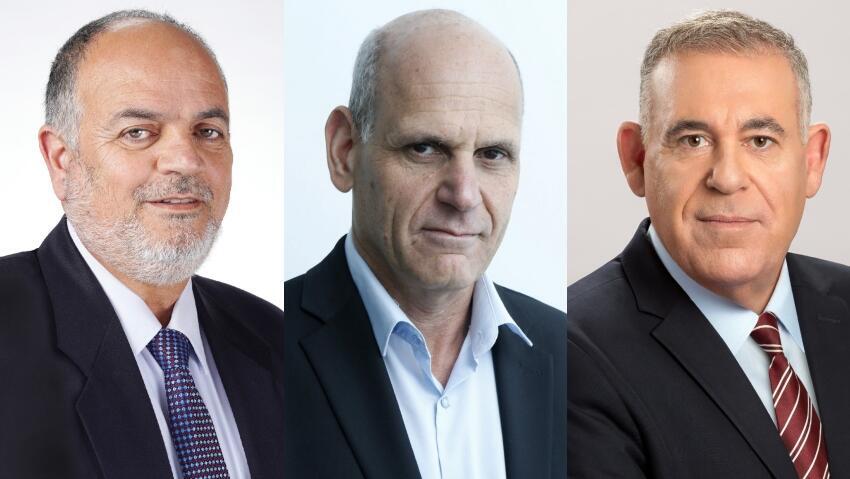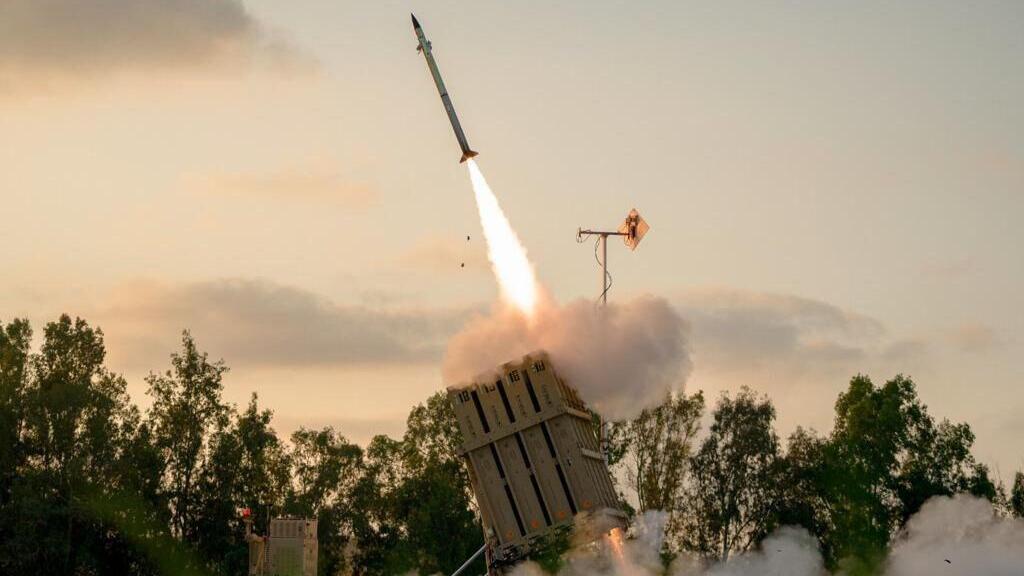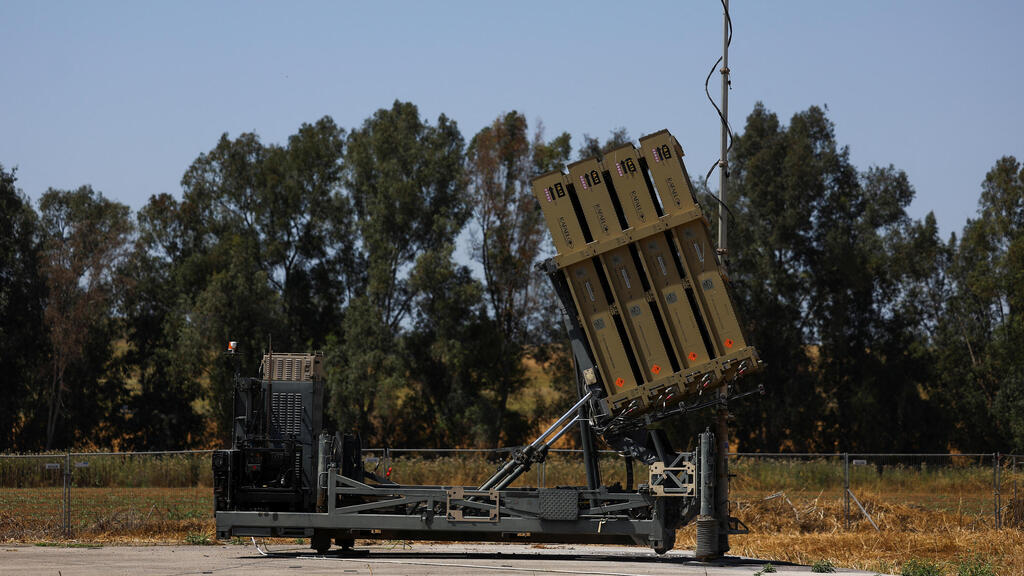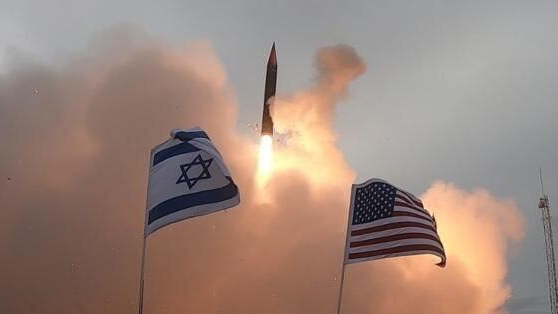The world took great interest in Israel’s air defense system following Iran’s attack against the country last week, drawing headlines from the U.S. and Germany talking about Israel’s technological capabilities. Officials in Israel’s military complex now say Ayatollah Ali Khamenei’s attack was the greatest advertising the Israeli system could get, and the statistics are there to back it up: 99% of the Iranian launches were intercepted.
The Israeli stock exchange also responded accordingly. The day after the attack, investors boosted stocks of security industries traded on it. Elbit rose by 4%. Next Vision, which develops cameras mounted on drones, rose by 5.13%. Aryt Industries, dealing with fuses, rose by 5.4%. Airobotics, involved in the collection and analysis of UAV data, added 6% to its price. One analyst was quoted as saying, "These companies have proven their technological capabilities, and investors understand their business potential."
It's still early to predict the extent of sales that will be added to Israeli industries following their proven reputation, but Israel is already noting increased interest, especially given the growing threats in the West, and particularly in light of the new aggressiveness demonstrated by Iran.
Boaz Levy, CEO of the Israel Aerospace Industry (IAI), said in a conversation with Ynet after the Iranian attack, "We received many phone calls from customers who wanted to have an analysis of the operation."
Elbit CEO Bezhalel Machlis added, "The attack aroused enormous worldwide interest, strengthening our international reputation, which is already strong as a defense company. Countries we’re in business with want production to take place at home, and we, via subsidiaries, are constantly expanding operations abroad - 7,000 out of our 20,000 employees are in dozens of our subsidiaries worldwide." That’s why recent reports said the IAI is now establishing new subsidiaries in the UK, India, and Germany.
Israel's major military industries have recorded an all-time high in orders throughout their history even before the Iranian attack: IAI with $18 billion, Rafael Advanced Defense Systems with orders totaling $14.5 billion, and Elbit with $18 billion. Alongside the high-tech sector, these complexes have become a leading growth engine for Israel.
For example, IAI transferred $364 million to the state treasury last year, and it will transfer a similar amount this year as well (however, it should be noted the estimated cost of the interceptions was between $2-4 billion).
Last year, Israel's security export volume reached a record high of $12.5 billion. According to Defense Ministry data, security imports doubled within a decade and increased by 50% in the last three years.
There’s no doubt that the IAI’s Arrow 2 and 3 systems, alongside Rafael’s Iron Dome and David's Sling of Rafael, are the main attraction of the Israeli defense industry which includes the cooperation of all major companies in order to develop them.
Despite the accolades directed at the industries, the United States must also be credited for the Arrow system’s development. "We owe a lot to the Americans; they were the first to challenge us with the missile interception challenge and they deserve the credit. Arrow and David's Sling were developed with shared American funding," says incoming Rafael CEO Yoav Turgeman, who headed the IAI’s Arrow project.
"The fighter pilots’ operational level and ground troops operating the systems are no less important than the technology itself,” he added. “This is an event on a scale that has never happened before. We’ve never experienced such a mass attack in the past."
Missiles that managed to get through the system could’ve caused massive damage if they struck population centers, what happens if our allies don’t stand by us next time?
"Even if one percent of the Iranian munitions penetrated, that’s phenomenal. It's not an existential threat. I don't think anyone in the world has capabilities that come close to our defense layers’ number and policies. Having allies is helpful, but we can defend ourselves on our own terms.”
You were naturally under a lot of pressure the night of the attack.
"For me, it was a night made for my life's work. I saw almost all the systems I've been involved in action, and it's a great privilege. I was responsible for the development of Arrow 2 and 3, I was responsible for the Arrow's command and control system at Elta, at Rafael I'm responsible for David's Sling and Iron Dome, as well as Python 4 and 5 air-to-air missiles, which were responsible for most of the interceptions carried out by the Air Force, beyond Israel's borders. We're glad we've proven our capabilities, and we're sorry they had to be put to the test."
4 View gallery


Yoav Turgeman, Bezhalel Machlis, Boaz Levy
(Photo: Israel Aerospace Industries, Amit Shaal)
What's next?
"We're constantly working on improving and optimizing our response to future threats. Rafael isn’t just a company, but also a center for the development of many technologies and serves as a national laboratory. We're currently working on a laser interception system, and we have achieved global breakthroughs. We've already proven its effectiveness two years ago and hope the first systems will be deployed next year.”
The laser can help reduce the high costs of interceptions because producing a laser beam is very cost-effective. The laser can provide a cheap solution for intercepting missiles from Lebanon and Gaza, cruise missiles and drones, but less so for ballistic missiles,” he added.




